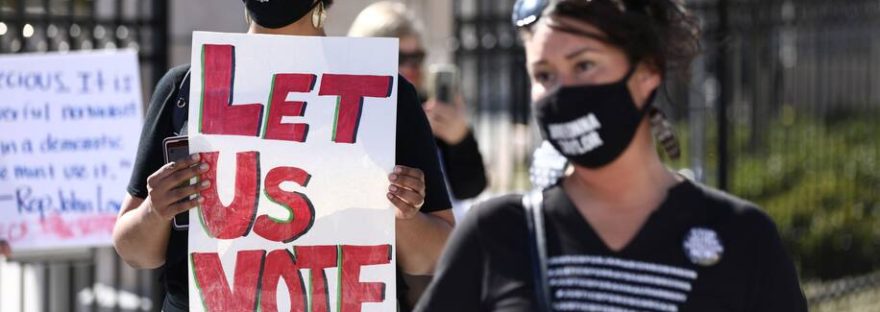 What might happen if Democrats succeed in expanding voting? California has some answers.
What might happen if Democrats succeed in expanding voting? California has some answers.
Among other things, the bill calls for independent redistricting commissions in all 50 states. Currently, in most states, state legislatures redraw voting district maps themselves. As a result, whichever party holds the state legislative majority in a redistricting year can draw district lines that would give their party an advantage. For example, in 2010, Republicans controlled Pennsylvania’s state legislature. Although more than 50 percent of Pennsylvania voters are registered Democrats, after the Republican-drawn map went into effect in 2012, Democrats won only five of the state’s 18 congressional district races. In 2018, the Pennsylvania State Supreme Court found that the state had been grossly gerrymandered to favor Republicans, and it ordered the state to redraw district lines.
California stripped redistricting power from the state legislature more than a decade ago. Pushed by the nonpartisan good governance organization Common Cause, California voters passed Proposition 11, the Voters First Act, in 2008, officially removing the legislature’s responsibility to draw new state legislative districts and placing that task with an independent citizens redistricting commission. The move was heavily supported by Republican Gov. Arnold Schwarzenegger and at the time strongly opposed by House Speaker and California Democrat Nancy Pelosi.
In 2010, voters broadened the commission’s mandate by also giving it the power to draw district lines for U.S. congressional seats. The Citizens Redistricting Commission is charged with using a party-blind process that respects communities of interest. The 14-member commission includes five Democrats, five Republicans and four independents. Many of the state’s Democrats feared this gave too much power to conservatives in the heavily Democratic state. Despite these concerns, the move toward independent redistricting is being replicated in other states. Arizona created a five-member commission in 2000 and this year, for the first time, Michigan will use an independent commission to redraw its lines.

